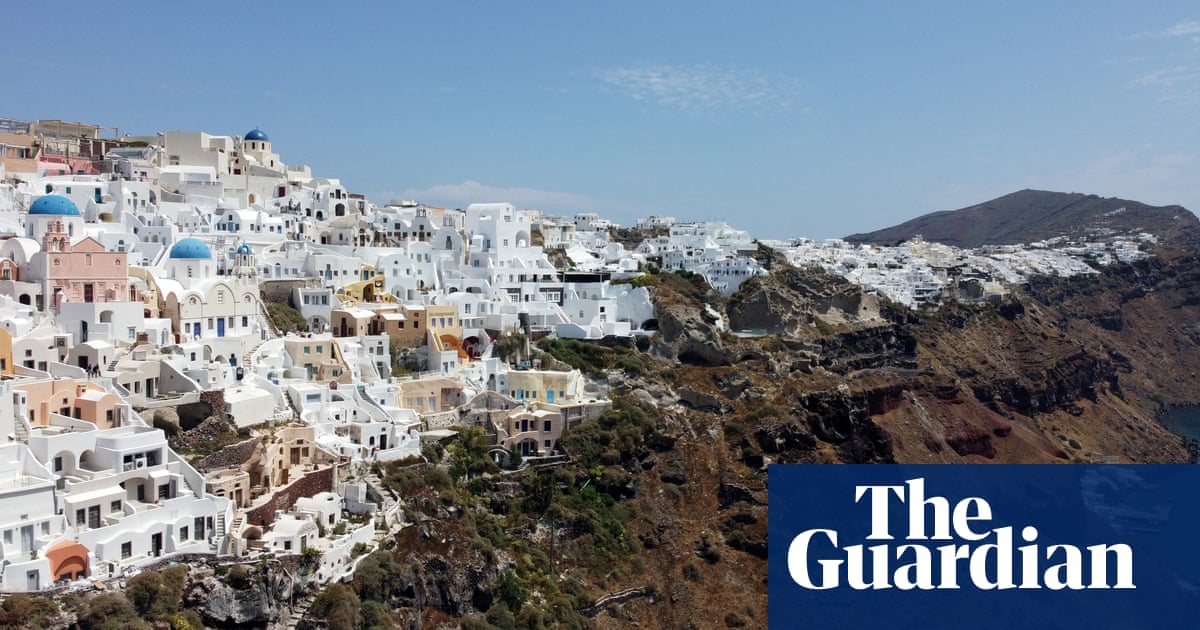Greek authorities have dispatched special forces, rescue teams, tents and drones to the island of Santorini after hundreds of seismic tremors were recorded in the area.
Amid fears of a bigger earthquake that could cause a tsunami, people were advised to avoid the shoreline and derelict buildings, to empty swimming pools and to refrain from gathering in large numbers in enclosed spaces. The civil protection ministry said schools would be shut as a precautionary measure on Monday.
“Nothing can be ruled out,” Kostas Papazachos, a professor of geophysics at Thessaloniki’s Aristotle University, told the state broadcaster ERT. “And that’s why precautionary measures are being put in place, precisely to limit the impact of a stronger earthquake.”
Greece sits on multiple faultlines and is often rattled by earthquakes, but experts described the increased seismic activity over the space of 48 hours, with more than 200 tremors registered, as dramatic, although they emphasised that the tremors had been triggered by tectonic rather than volcanic activity.
Papazachos told local media that many of the earthquakes measured 4 to 4.5 on the Richter scale, with the strongest recorded in waters between Santorini and Amorgos.
The site of one the largest volcanic eruptions in recorded history, Santorini is also Greece’s most popular Aegean isle, attracting an estimated 3.5 million tourists last year.
By early evening on Sunday as similar measures were taken on Amorgos and the nearby islets of Ios and Anafi, rescue teams in Santorini pitched tents in elevated areas on basketball courts and in car parks. In the event of a tsunami, people were told to head inland.
Ferry companies said there had been an increase in foreign workers leaving the island for the port of Piraeus. A UK government travel advisory referred to guidance issued by the Greek civil protection ministry on earthquakes.
Research has shown the crust beneath the seas around Santorini to be replete with faultlines. In 1956 the island sustained extensive damage after being hit by an earthquake in excess of seven on the Richter scale, which caused a tsunami.
after newsletter promotion
Gerasimos Papadopoulos, a seismologist, said “everything is possible” but the heightened activity had been recorded “in the sea at significant distances from the islands”, which was “fortunate”.
Further protective measures were to be discussed at a cabinet meeting called by the prime minister, Kyriakos Mitsotakis, later on Sunday attended by the head of the armed forces, amid speculation that the military would also be dispatched to the Aegean isles.


